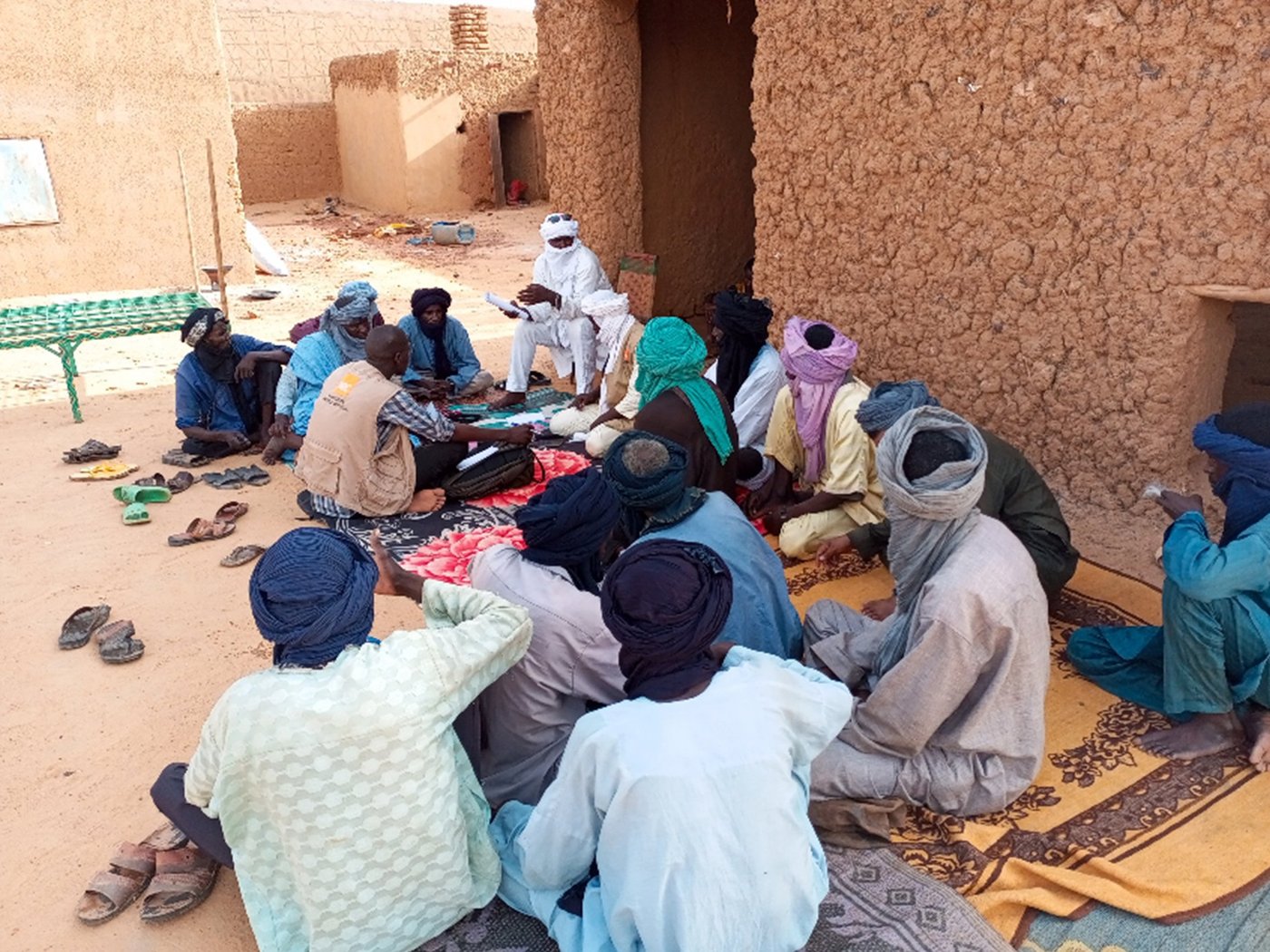Fuelling local dispute
The crisis has affected the Water and Forestry Service in charge of protecting trees in Menaka. Since that service stopped operating, confusion and disagreements have grown between communities.
In recent years, the Agoussou community took it upon themselves to protect the trees in their area. However, this created problems with their neighbours, the Akazizi community, who have traditionally cut wood to make tools and crafts they sell to support their families.
Tensions rose quickly. Despite efforts by community elders to calm the situation, the harmony was starting to shatter.
“Tensions were so high between the blacksmiths and the herders that the older children of one community group were attacking the younger children of the other,” explains an Akazizi religious leader. “The herders were no longer buying the blacksmiths' handicrafts and leather goods.”
“Since tree cutting was banned by the Agoussou, it’s been harder for the two communities to get along,” adds the Agoussou site manager.
Calming tensions
After being alerted of the situation, the Norwegian Refugee Council (NRC) stepped in to address the growing conflict. They created a dialogue framework that allowed both communities to explore peaceful, mutually acceptable solutions and reduce the risk of violence.
Through a careful conflict analysis, the main actors have been identified, underlying causes, and possible long-term impacts of the dispute. Then a series of activities have been carried out, including awareness sessions within each community and the establishment of an agreement that allowed both parties to use trees under specific conditions.
“Thanks to the solutions agreed upon during the mediation, we’re no longer afraid to go about our work and use wood for our craft,” says the blacksmiths' leader.
"If everyone honours their commitments, the blacksmiths will no longer cut down the trees in our forest, which are the main source of food for our goats,” expresses a farmer.
NRC's intervention prevented the two parties from resorting to violence. The mediation was carried out as part of a project funded by the German Ministry of Foreign Affairs (GFFO).
Mali is one of the world’s most neglected displacement crises. It may not make the headlines, but the needs are urgent. Share this story and help shine a light on the world's neglected displacement crises. Your voice matters when others remain silent.
Sign up to our newsletter to read more stories from around the world.


